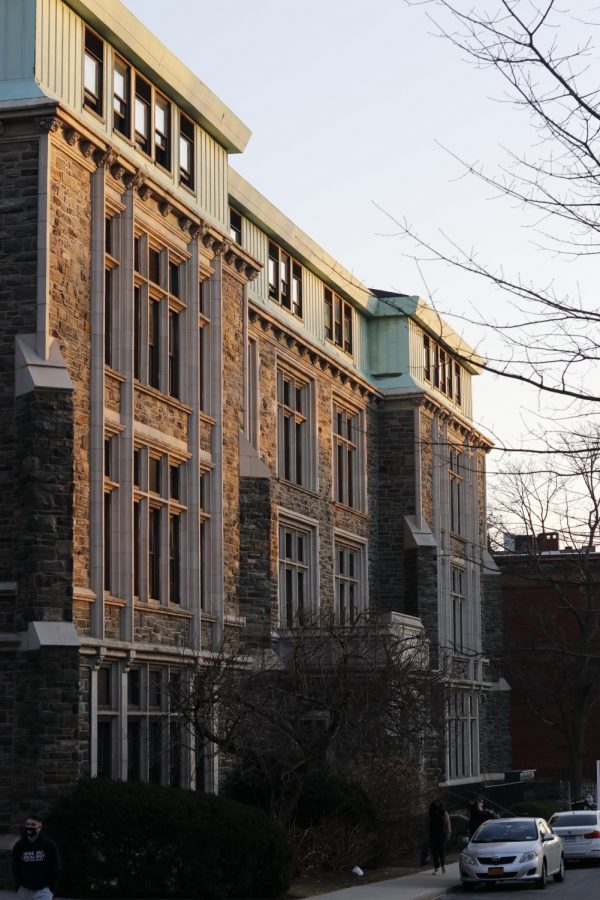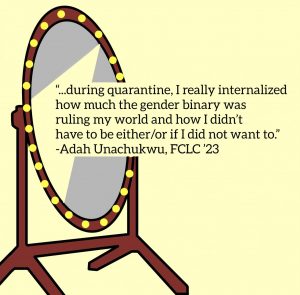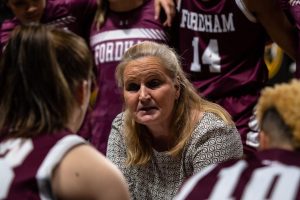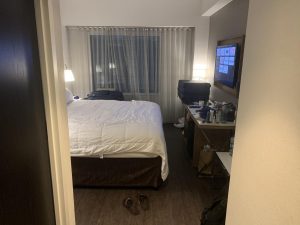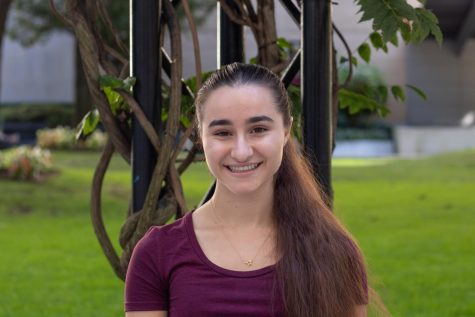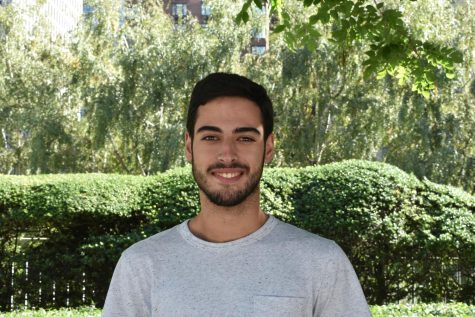Students Speak Out Against On-Campus Quarantine Procedures
The implementation of quarantining has caused several students to feel the university is unprepared for rising cases
Finlay Hall, a Rose Hill dorm with isolation and quarantine rooms set aside. Students in quarantine live in the same buildings as people who aren’t, though they do not share any living spaces or bathrooms.
March 10, 2021
Quarantine practices at Fordham have received scrutiny from affected students, who are reporting concerns about the university’s lack of accommodations.
Over the course of the spring semester, COVID-19 cases have risen at the university, reaching over 200 cases at the Rose Hill campus between the two-week period from Feb. 9 to Feb. 22. As a result, several Fordham students have come into contact with someone infected with the virus, requiring them to either quarantine or isolate.
“Basically, my whole hall got COVID, so I knew it was coming to me,” Robert Marlow, Fordham College at Rose Hill (FCRH) ’24, said. Marlow became extremely sick and endured a high fever; once he tested positive, he was put into isolation immediately.
The university has different protocols for students depending on whether they have tested positive for the virus or if they have been exposed to someone with the virus, according to Keith Eldredge, the dean of student affairs.
Contact Tracing
“Everything starts when someone tests positive,” Eldredge said. Once a student tests positive for COVID-19, University Health Services will notify Public Safety of the case, which begins the contact tracing process. The student who tested positive is contacted and informed that they must begin the isolation process, which can be done either on campus or at their own residence if this option is available to the student.
Submissions from students on the @letstalkaboutitfordham Instagram account have reported that the university tried to force students to return home to quarantine or isolate at their own residence.
“We’re not going to ask students (to quarantine at home) if it’s not feasible, but if it is feasible, we’ll at least ask the question,” Eldredge said.
“It’s handled on a case-by-case basis, but generally we’re going to err on the side of caution.” Keith Eldredge, dean of student affairs
Marlow said that he didn’t feel Fordham was trying to pressure him, but they did challenge him on his decision to isolate on campus. Even though Marlow is close to home, he didn’t want to return home and risk infecting his parents. He added that his parents would also need to take off work once exposed to him, which would have been too big of a burden.
Students who have not tested positive but have had “close contact” with someone who has tested positive are notified by Public Safety contact tracers and expected to begin quarantine.
Following the New York City Department of Health guidelines, Fordham considers “close contact” any exposure lasting 10 minutes and within the 6-foot range over the course of 24 hours.
The university does not make any qualifications for close contact when it comes to mask-wearing. However, contact tracers do take into consideration the size of the classroom, the number of students in the room and the airflow in the classroom before determining whether the entire class needs to quarantine if one student tests positive.
“It’s handled on a case-by-case basis, but generally we’re going to err on the side of caution,” Eldredge said.
There is space set aside at the Rose Hill and Lincoln Center campus for students in isolation or quarantine. Students isolating may be placed with other isolating students who have also tested positive for the virus or share communal spaces with those students in suite-style housing.
Students who are quarantined are not allowed to have any roommates or shared living spaces with other students, but they may share communal bathrooms with other quarantining students, according to Eldredge.
On-Campus Space
Marlow was placed in an isolation dorm in Finlay Hall with his roommate since they had both tested positive. Across the hall from him was another group of students who lived in Finlay and did not have COVID-19, he said.
“One morning, I went out to grab my food and they were walking out at the same time, and they were like, ‘oh my god.’ They knew I had COVID and they were really scared,” Marlow said.
In some cases, students have reported that the space set aside did not appear to be clean and was missing basic amenities.
“By the end of the week, I had an ant infestation in my room — ants crawling on the walls, all over the floor — I had to keep my shoes on.” Robert Marlow, FCRH ’24
Bryson Kernan Clark, Fordham College at Lincoln Center (FCLC) ’23, who quarantined for two days on campus in the fall, said he had no hand soap or toilet paper when he arrived at his quarantine space. He also did not have a number to call back to ask about these missing items.
“I had to wait until they called me back, and when I asked them for some, they said they would bring toilet paper, but about the hand soap, they said they do not supply toiletries,” he said.
Marlow was also missing hand soap in his isolation room. He had to use body wash as a substitute for the entire 10-day stay.
Clark noted that his room did not look clean when he entered it. There were Q-Tips and lipstick on the floor, he said. Another student, Laura Kelly, FCRH ’23, who also quarantined during the fall semester, said the towels she was provided did not look clean.
There also was no trash can in Marlow’s room, so he and his roommate had to collect their trash in the bags that arrived with their delivered meals.
The trash build-up was so serious, that “by the end of the week, I had an ant infestation in my room — ants crawling on the walls, all over the floor — I had to keep my shoes on,” he said.
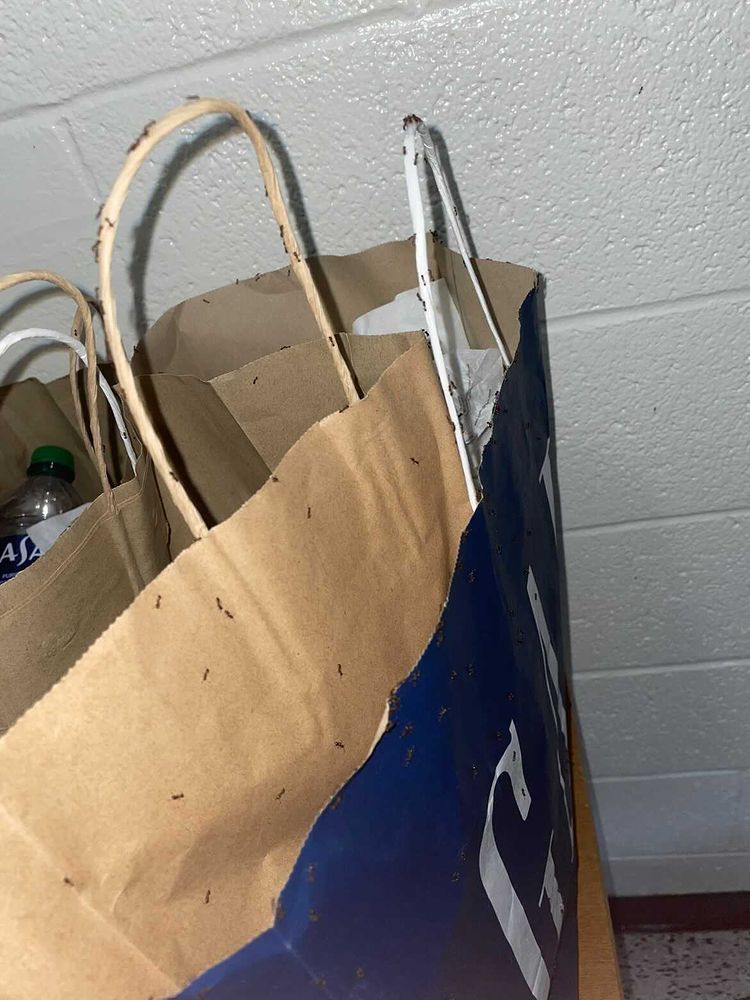
Supplied Meals
The university provides three meals a day, delivered in two shipments, to students who opt in to the service. The first delivery includes breakfast and lunch, and the second delivery is for dinner.
Kelly said that dinner was delivered at 4:30 p.m. every day, so she often ate very early. Having quarantined in the fall, Kelly said she did not have a microwave or refrigerator available to heat up or refrigerate meals.
Yet, Eldredge said that the university worked to make sure that each quarantine or isolation unit has a microwave and refrigerator so students can keep meals fresh and heat them up when they want to eat.
“You can’t really expect much from Fordham campus food, especially when it’s through the cafeteria.” Laura Kelly, FCRH ’23
Students are not required to opt-in for the university’s delivery services if they have an adequate way of feeding themselves in their units, but students are not allowed to leave their rooms under any circumstances — even to pick up take-out or groceries delivered to the building entrance.
“We’ll work with students who have other friends that can pick up the Fresh Direct delivery and drop it at their door for them, or do different things, but we want to make sure that they’re not totally reliant on someone to be able to do that,” Eldredge said.
Unless a student is already on a meal plan, they have to pay $40 a day for food to be delivered through dining services. Eldredge said that the administration went back and forth on whether to charge students for meals, but ultimately determined it made the most sense to do so. He added that the university worked with dining services to maintain the regular costs of food and services.
The meals delivered to students who opted-in were reportedly disappointing to many students.
“You can’t really expect much from Fordham campus food, especially when it’s through the cafeteria,” Kelly said. “I didn’t feel super sick from any of it, but just in general, the food from Fordham doesn’t make me feel great.”
According to Marlow, the food delivered was sometimes cold and there weren’t large enough portions to sustain him. He said he lost weight by the end of his isolation period.
“How am I supposed to feel better when I’m not getting proper nutrition?” Robert Marlow, FCRH ’24
“I was literally hungry at times,” he said. “How am I supposed to feel better when I’m not getting proper nutrition?”
Since Marlow was located on the first floor, he had his friends throw him snacks through his window. The meals delivered did have a few snack items, such as a bag of chips or a cookie sometimes, he said. More often, he was given an unripe banana with his meals and had to wait for it to ripen before he could eat it.
“We’re spending tens of thousands of dollars a year and we can’t even get quality food,” Marlow said.
Miscommunication
Many students have pointed out Fordham’s lack of communication about the quarantine and isolation process, arguing that if they had more information at the beginning of the process, they would have been more prepared.
In Clark’s case, he was only given 20 minutes to pack before he had to enter his quarantine space on the second floor, where he was expected to remain for 14 days. He said he wished that he was told which amenities would be provided and what to bring with him.
His quarantine also ended 12 days early when the university realized that he wasn’t supposed to be quarantined to begin with. According to Clark, he left the state for less than 24 hours and received documentation that made it clear he did not have to quarantine to be allowed back in. However, Fordham required him to quarantine anyway. It wasn’t until after Clark pressed the issue that Fordham reviewed his situation and released him from quarantine two days later.
“It’s an awful experience. I just recommend that everyone be as careful as possible so you don’t have to go through it.” Laura Kelly, FCRH ’23
Despite being let out of quarantine, Clark continued to receive phone calls from other departments that told him he needed to quarantine days after.
University Health Services and Public Safety are available for students to contact in case their symptoms start to worsen, although not all students were clear on how to contact them.
Due to the stress he was experiencing from spending his 10 days in isolation, Marlow said he started to have an anxiety attack, which he had never experienced before. He didn’t know who to contact to help, so he ended up calling his resident assistant who put him in contact with Public Safety.
“That was really scary, I just didn’t know who to contact at that moment,” he said.
Kelly also noted that during her quarantine stay, she only heard from the University Health Center at the beginning and at the very end before she was let out. She advised that Fordham should check up more on people in quarantine to make sure they are doing okay.
“It’s an awful experience. I just recommend that everyone be as careful as possible so you don’t have to go through it,” she said.

